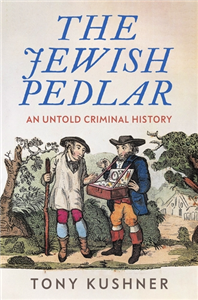Imagine Being a Jew for One Hour
Stories against anti-Semitism
by Kurt Oesterle
Hatred of Jews is long-standing, widespread and powerful. After Auschwitz, the lesson used to be: “Never again!” However, anti-Semitic resentment, like an epidemic, still grips the bourgeois middle-class in our society. In his book “A Jew for One Hour”, Kurt Oesterle convincingly demonstrates how hatred of Jews functions in aesthetic and emotional terms with no empathy whatsoever. He also shows that for the past 200 years of German literature a line of tradition can be acknowledged “in defence of Jewishness”. Kurt Oesterle accounts for this in his book of stories with an impressive depth of knowledge, with a generous heart and mind and incredible commitment. A truly significant book.





























